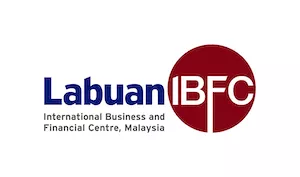- within Tax topic(s)
- with readers working within the Healthcare industries
With the relentless global pressure for transparency, substance and fairness, could the middle spot eventually end up being the sweet spot?
Tax and the issue of its transparency is a subject matter with a mixture of new and renewed pressure points. These pressure points stem from various sources, but the key is the unrelenting demand arising from global regulatory standard setting bodies and multilateral agencies.
These demands are effectively meant to create a standard global playing field, levelling key provisions in international tax and legal arbitrage, "levers" which all financial centres have historically used to establish a competitive edge.
Concurrently, thanks to the numerous media exposé and attention-grabbing headlines, the global business and asset intermediation industry has been vilified and positioned as THE unifying bogeyman. Never in recent history has tax, has it been the focus of so much discussion, both in mainstream newspapers and Boardrooms. There is now even a concept of paying an equitable amount of tax, especially if the corporate body wants to be seen as a responsible global citizen.
At the World Economic Forum in Davos early this year, Google CEO Sundar Pichai said that Google is happy to pay more tax but the question was where and how should Google pay. Imagine that, the CEO of a company, stating to the world he would be happy to pay more tax!
Pressure, pressure everywhere... No respite in sight!
There is undeniable pressure from all four corners of the world. This pressure is certainly not alleviated when jurisdictions known as offshore centres are constantly under hawk-eyed scrutiny. Dedicated groups of multilateral organisations have been set up to monitor how countries manage their taxes, and how they implement the taxation system, historically solely the purview of each sovereign state.
Cases in point are the formation of the G7 initiative's Financial Stability Forum (previously known as the Financial Stability Forum), the European Union's Economic and Financial Affairs Council etc, in addition to the adoption of numerous standards being launched by the Organisation for Economic Co-operation and Development. And let's not forget the constant threat of blacklists.
Such is the pressure facing countries and companies, in the face of international condemnation.
The recent decision by the Parliament in the United Kingdom which requires full disclosure of company ownerships registered in the British Crown Dependencies by 2020 could be seen as a classic example of how this pressure comes to bear. And some commentators believe this is just the beginning. Even as financial hubs that, in the first instance meet these standards, find these 'goal posts' often times moving, as if the hubs are in an "amazing race" to "uncover" new standards of transparency adherence.
This is especially true when new regulations such as the UK Criminal Finances Act 2017 make it a criminal act to prevent the facilitation of tax evasion.
In addition, the financial services industry itself, has also been undergoing significant changes since the global financial crisis in 2008, with financial standards themselves becoming more complex such as Basel III, Markets in Financial Instruments Directive II, International Financial Reporting Standards 16 and 17 and so on.
A double whammy! Some commentators have even argued that the standards being brought to bear on some international financial centres are even higher than typical onshore financial centres such as New York and London.
So, you can imagine that it becomes extremely intriguing to watch how these typical onshore financial centres have begun or are contemplating reducing their headline tax rates.
Birth of new "offshore onshore" centres
News claim that even influential and powerful countries such as the United States is perceived to be 'one of the world's best places to hide money from the tax collector'; something that the US are constantly trying to disassociate from.
It was also reported that the US is no different to Switzerland when it passed the Foreign Account Tax Compliance Act (FATCA), compelling all non-US bank entities to report the identities and assets of potential US taxpayers to the Internal Revenue Service. With not much choice at hand, more than 100 countries have committed to this agreement for the fear of losing access to the US financial system. And as the US is not adopting the Common Reporting Standard as set by the OECD, there isn't a two way flow of information between the US and other countries. Without reciprocity, can there be transparency?
Against this backdrop, one must not ignore the significance of the substantial cut to the US Corporate Tax Rate, the first in 30 years, from 35% to a mere 21%. A report from the OECD indicates that the country's corporate tax is 'well below the average among developed nations.
This scenario facilitates the advancement of existing low tax jurisdictions within the US itself. Indeed, the very existence of offshore-onshore tax havens in the US such as Delaware, Utah and Vermont is not unfamiliar to many. Delaware, for example, has incorporated more than 1.2 million business entities with 189,542 new business formations in 2016 alone!
Interestingly, the UK is also not spared from criticism. The UK stands to be blacklisted by the European Union if the nation decides to use tax competitiveness to leverage its competitive edge after Brexit.
Revelations also indicated that the amount of tax avoided by multinational companies in the UK had increased by close to 50% to £5.8billion in 2016. So, will the 'hard Brexit' – which might be in the making – provide the impetus for further facilitative fiscal framework to be introduced?
Notwithstanding, studies have identified the UK as among one of the top five countries acting as a 'conduit' for many offshore centres. Some have remarked that with the grouping of the UK Overseas Territories in the Caribbean, Channel Islands – including the Isle of Man, Jersey and Guernsey would eventually make the UK onshore market effectively the 'onshore mother' of the offshore centres!
The Blurring of Lines: Are midshore centres the ideal solutions?
With the lines between offshore and onshore centres being blurred, will the "winners" eventually be those with enough economic might and political influence? Or will the future lie with midshore centres in economically growing regions such as Asia?
Could the rise of midshore centres such as the Labuan International Business and Financial Centre (Labuan IBFC), be the result of the paradigm shift in international business and wealth intermediation?
Labuan IBFC has always been somewhat of an enigma to the unfamiliar. The jurisdiction is part of Malaysia, one of the largest trading nations in the world, with a healthy Gross Domestic Product, and located in the centre of booming East Asia.
The midshore centre has been strategically designed to meet the demands of a future IFC, where cost efficiency and innovation are married with transparency, economic substance as well as stringent provisions on money laundering and terrorism financing.
This eco system was so carefully crafted decades ago, with the intention of benefitting expanding Malaysian companies looking to outward towards fulfilling their plans for regional dominance, and over the years, its regional acceptance has come of age.
The recent growth in all areas of industry, including international company incorporations, private clients foundations as well as trusts, reinsurance and risk management entities including captives, Islamic financial services, private funds, banking assets and loans growth, it would suggest that Labuan IBFC has hit a sweet spot.
The fact is whilst growth in other more traditional offshore centres are dwindling by double digits every quarter, Labuan IBFC's growth whilst modest, remains strong and consistent.
It is worth noting that its regulator, Labuan Financial Services Authority, is constantly updating its regulations and is a member of several international standard setting bodies including the Asia/Pacific Group on Money Laundering (APG), providing unequivocal evidence of the jurisdiction's commitment in countering any money laundering and terrorism financing activities in the jurisdiction.
As a midshore centre, Labuan IBFC adheres to all the global standards of supervision, regulation and anti-money laundering as well as terrorism financing as Malaysia itself The jurisdiction has never accepted bearer shares in the entire close to 30 years of its existence, nor has cash transactions ever been carried out via its banking system spanning more than 50 international commercial and investment banks.
The range of unique and bespoke structures on offer is cost-efficient, tax and currency neutral which to some degree makes it 'looks traditionally offshore' but in reality, is not – that makes Labuan IBFC a unique midshore centre.
So maybe just like everything else in life, truth north lies in the middle ground.
After all, "Virtue lies in the middle ground," said the late Dr Jose P Rizal, a Filipino polymath, patriot and the most prominent advocate for reform in the Philippines during the Spanish colonial era.
The content of this article is intended to provide a general guide to the subject matter. Specialist advice should be sought about your specific circumstances.
[View Source]

